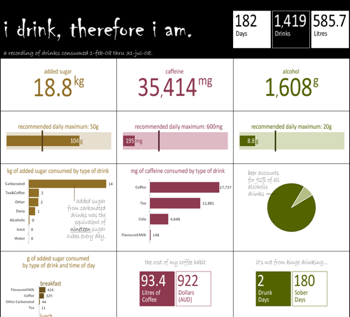Today at 3 (in Heidelberg) I’m running a breakout session on QS & Privacy: How can we ensure privacy as we share our data stories? What rights and responsibilities do we have? Where is the public-prviate boundary?
Here are a few provocative thoughts from conversations so far today.
Body Blogger Kiel Gilleade talked about heartrate this morning:
My boss called me to ask whether I was working on a deadline because my heart rate was in the green zone rather than in the red zone like the last paper-writing deadline.
He observes: situational & contextual info is crucial for interpretation.
Tom Hume tweeted:
You don’t control your identity. It’s manufactured by those around you. #qs2011
Joshua Kauffman tweeted:
There is no such thing as personal health data. All matters of health are socially shared and derived. #qs2011

